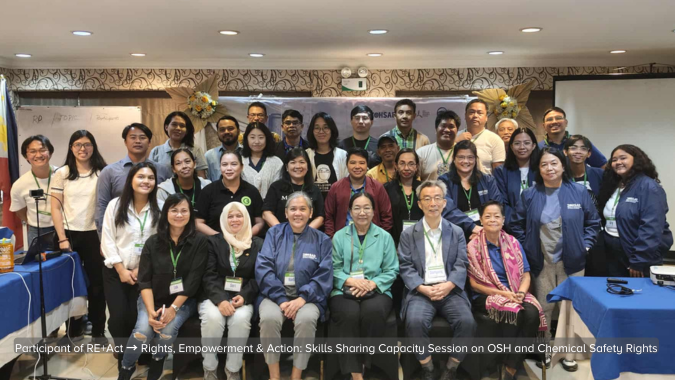The GoodElectronics paper “Exploitation by deception in the electronics industry” argues that, when workers are not provided with relevant information about the toxic and otherwise hazardous substances in the workplace they are actually or potentially being exposed to, this could constitute exploitation by deception. Furthermore, exploitation by deception regarding toxic exposures could and should be an actionable offence under various laws.
Tens of millions of workers are exposed to hazardous substances in the workplace every day. According to the International Labour Organization (ILO), approximately four workers die every minute as the result of working in an unsafe or unhealthy workplace.
Toxic chemicals at work
The electronics industry is no exception as it uses toxic substances throughout its lifecycle. Cases from around the world have brought to light the extent to which electronics workers are exposed to toxic chemicals at work. These cases have implicated governments and companies in the world’s richest and poorest countries along the lifecycle of electronic goods – from the extraction of raw materials to the manufacture of electronic components and products, to recycling and recovery operations.
Lack of information
A common denominator across many of these cases of workers’ exposure to hazardous substances is the lack or inadequacy of information. In the context of the large volumes of hazardous substances used by workers in various industries, providing adequate information is essential to help prevent risks, mitigate harms, conduct research on safer alternatives, and to provide an effective remedy. In these circumstances, information is fundamental to the enjoyment of human rights – in essence a right unto itself and an enabler of other human rights.
Deception in the electronics industry
The report describes the problem of deception in the electronics industry, followed by an analysis of the normative framework for workers’ rights that are relevant to the problem at hand. The report concludes by outlining States’ obligations to recognize and enforce exploitation by deception and businesses’ responsibilities to inform workers and makes recommendations to States, businesses and workers’ representatives.
Download the paper “Exploitation by deception in the electronics industry” here.










